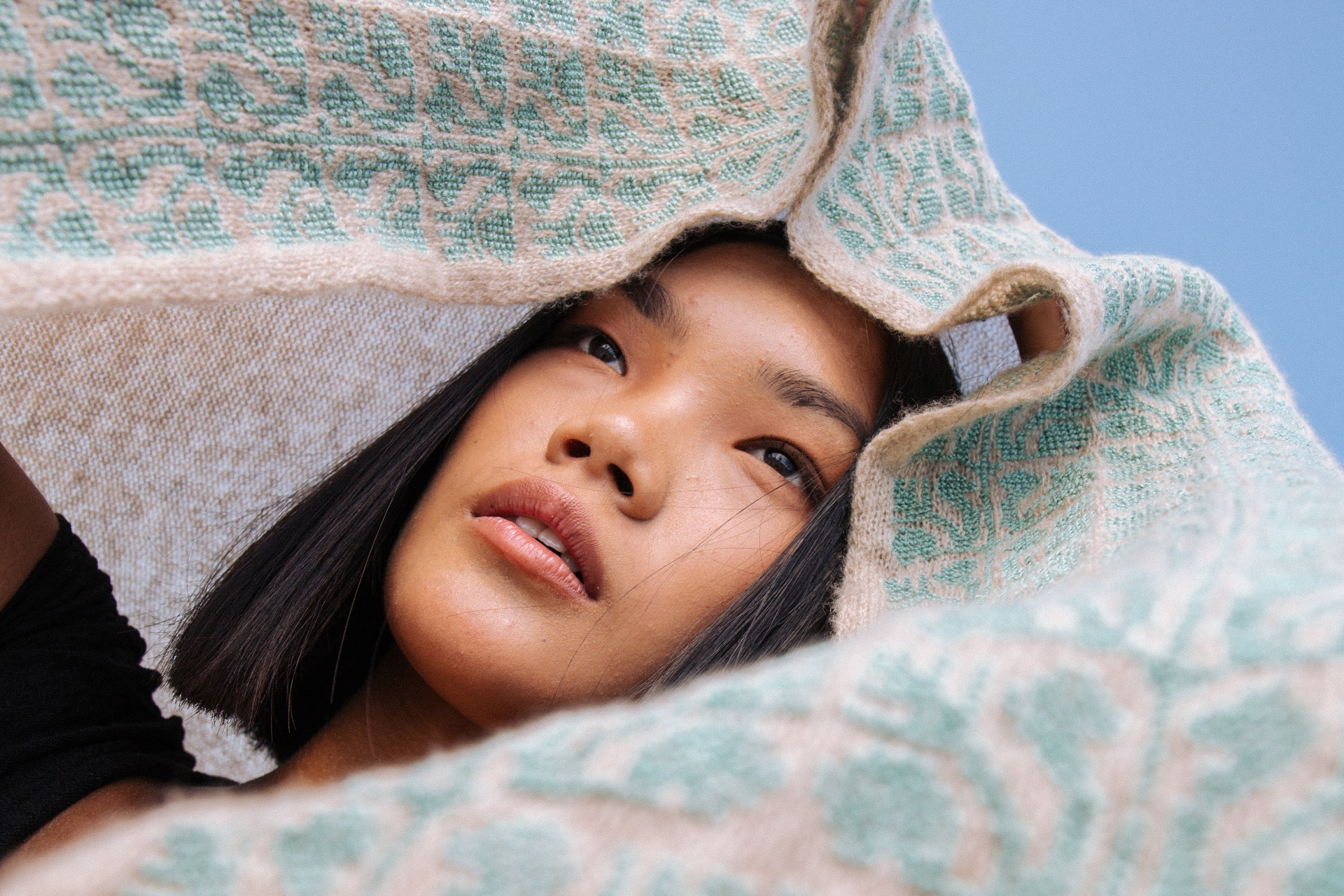
- HOME
- CULTURE
An Interview with Roberta Ventura, Founder of SEP Jordan
'I could see refugees living in poverty, but I could also see this incredible skill and talent that they had'
By | 3 years ago
We sat down with Roberta Ventura, founder of ethical fashion and home accessories brand SEP Jordan, to discuss displacement, sustainability, and what it means to be a social entrepreneur in 2021.
An Interview with Roberta Ventura, Founder of SEP Jordan
Not many people have heard about SEP Jordan just yet, but those who have can only say good things about it. From the beautiful quality of its products to the inspiring stories of its artists, SEP is the place to go for accessories and homeware that carry a deep meaning for both maker and owner.
Founded in 2013 by former banker Roberta Ventura, SEP is the first private Jordanian company to set itself up in the Jerash ‘Gaza’ Camp. With positive social impact being its core mission, SEP works with the women residing in the camp to nurture their talents as artists and craftswomen. In doing so, the brand creates opportunities for economic independence for hundreds of women and their families.
SEP’s artists hand embroider a range of accessories with patterns inspired by Islamic geometry and their Palestinian heritage – from shawls and cushions to intricate tablecloths.
Each artist is trained at the SEP-Tamari Foundation Academy, where they can hone their craft and take classes on domestic violence, nutrition, first aid, and English. Once they’ve completed their training, the ladies are free to start work, where they are paid weekly (above market rates) for each creation they produce.
With displacement a harrowing reality for many once again, we should be doing our bit as a global community to change negative attitudes towards the ‘refugee’ label. With this in mind, we got in touch with Roberta to talk about SEP’s creation, mission, and future goals.
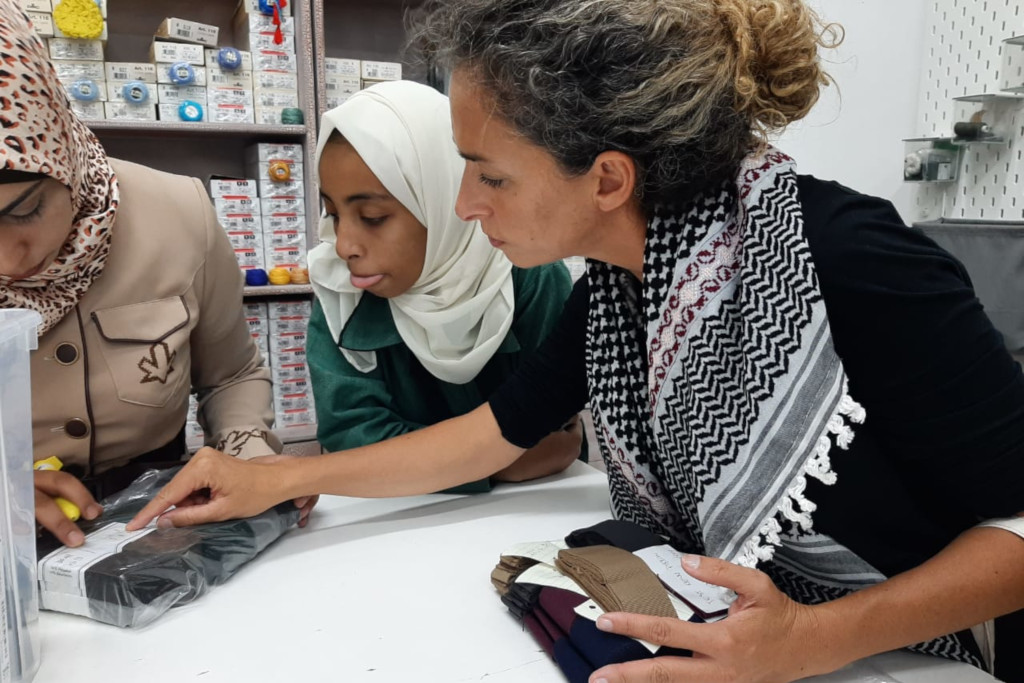
Roberta Ventura (right)
What led you to creating SEP Jordan?
I could see refugees living in poverty, but I could also see this incredible skill and talent that they had. The innovation was to take typical ‘demand and supply’ thinking and use it for the benefit of a community which is underprivileged. They had the skill, and my husband and I could bring industry experience and knowledge of what the global consumer wanted. We could pull our forces together as colleagues. There’s no donor and there’s no beneficiary, we wanted to work together on the same level and see if consumers were ready.
What kinds of products do you make at SEP Jordan?
Cashmere shawls, linen shawls – but also amazing lifestyle accessories for the home. We love using linen and cashmere because they are made from natural fibres. Linen especially we love, because it is 100% biodegradable, and it is actually today the most sustainable natural fibre out there. It requires less water to make, and the actual flax plant can be fully utilised, meaning there is no waste. So, we love linen as a concept, and we love the way linen feels. That’s why we place a lot of emphasis on linen shawls, placemats, tablecloths, and mix it with cotton to make our cushions.
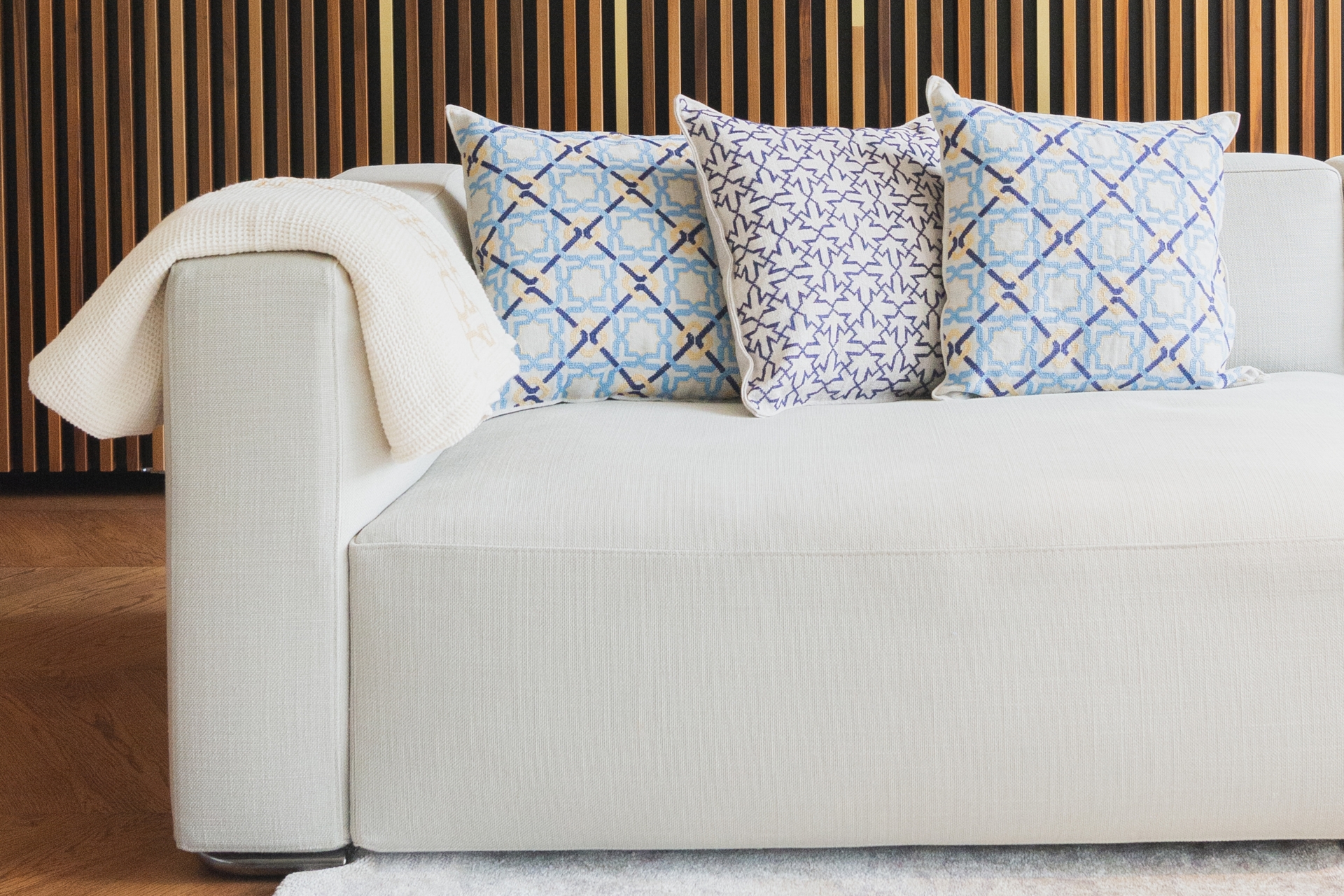
What makes SEP Jordan sustainable?
On the one hand, we want to create accessories for the home and fashion which are timeless and hand embroidered. On the other, we try to make sure that we source materials that are the least damaging to our planet. We’re a social enterprise – our main mission is positive social impact – but we’re also very mindful of our impact on the environment. Hence why we prefer to use linen.
We spend a lot of time on sourcing to make sure our materials are good quality and that we have visibility of the whole production chain.
What goals do you have for SEP Jordan to become more sustainable than it already is?
We would like to be carbon neutral by the end of 2022. It won’t be very hard, because our products are entirely made by hand – by definition there’s no CO2 generated by hand embroidery.
The carbon footprint that we do generate comes mainly from shipping goods from our suppliers to Jordan and then from Jordan to our customers. We are working with our shipping and courier suppliers because they themselves have measures in place – for example, we’ve moved from your traditional plastic DHL bags to work with Aramex (they look like plastic bags but they’re actually biodegradable).
The next step is to make sure that, together with our freight forward service suppliers, we offset the CO2 created by shipping. Again, I’m actually quite optimistic. You may have seen that DHL recently ordered some electric planes, so the shipping companies themselves are aware of the need to be sustainable on their end.
What does it mean to be a social entrepreneur?
You have all of the challenges of any entrepreneur, but over and above those normal business challenges you have this enormous moral responsibility that you take upon yourself – in our case, this is to bring our colleagues above the poverty line. It can be quite daunting, which is probably why we don’t have as many social entrepreneurs as we wish out there.

Can you tell us a bit about the ladies from the Jerash camp?
One of the ladies who manages our workshops has been able to build a beautiful house for her family just outside of the camp – it’s amazing, it’s surrounded by fields, and she grows flowers, fruits and vegetables. She once was unemployed and depressed like most of the ladies we meet, but she’s working really hard in her role. She now also has a really high standard of living, which maybe 10 years ago was unheard of.
These women are mostly second-generation refugees, they were born at the camp because their mothers had escaped the war. They grew up thinking there was no hope but now they have a career, a profession, and a means of investing in their families. Each artist has their own story, but a lot of the time they say they’re very proud of putting their children through higher education from their income generation.
We try to share their stories on our blog, while being respectful of their privacy. The last thing we want to do is make them an instrument or use their difficulties and struggles to get a result.
How do you see the lives of refugees changing in the future?
Sadly, it’s back in the newspapers – this subject of displacement and its consequences. The UN is currently expecting displaced people to remain refugees for at least 17 years.
You can see that clinical depression is a massive consequence, one that creates very deep scars generation after generation. Treating displaced people as if they were groceries – moving them from one place to another and then storing them away – just isn’t good enough. It’s not sustainable for them, their mental health, or the economy of the host country.
What we are trying to demonstrate is that when you move beyond the refugee label and consider them as human beings with talents – whatever that talent may be – and acting agents rather than receivers of aid, you bring dignity back into the picture.
It does wonders not just for the refugees and the host community, but also for our clients. Because suddenly there’s this healing process that takes place whereby you change your own perception of refugees. You own a wonderful shawl or tablecloth, and your guests will say ‘Oh my gosh, where did you get this?’ and you can say it’s from SEP, it’s hand embroidered and the lady who embroidered it is called Halima. Everything is signed, everything has the name of the artist who embroidered it.
In that sense, you then suddenly see refugees differently because you get used to seeing the talent and skill and you respect it. The person who made it isn’t just someone with their hand out looking for gifts, cash, clothes, blankets.
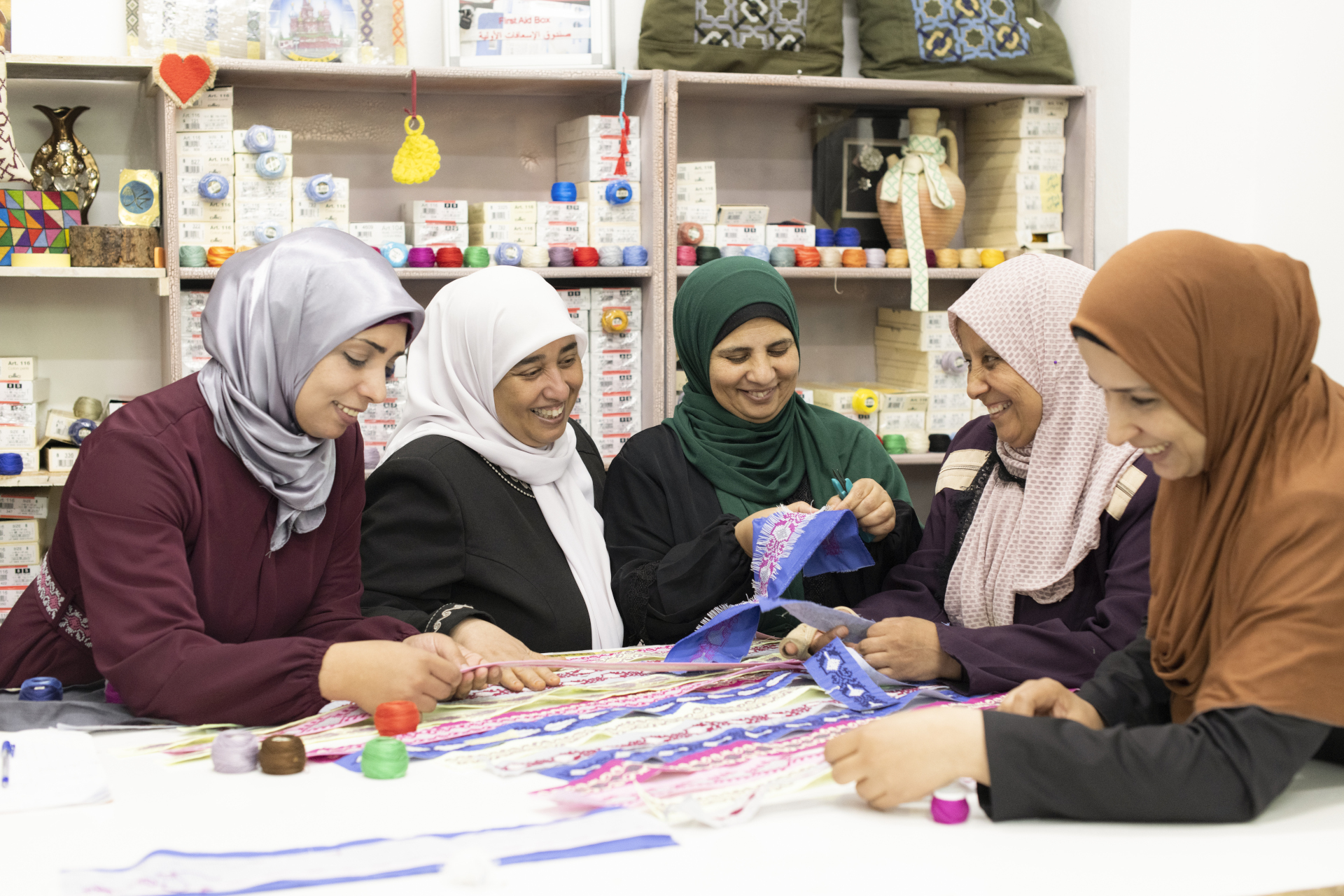
By creating this model that brings displaced people above the poverty line, we really aim to change the perception of refugees and demonstrate that if you move beyond the scary stigma there are huge opportunities for everyone.
And the impact for our artists is just unbelievable. We’ve been working for years now with the Jerash camp, and the ladies have told us consistently that their clinical depression symptoms massively improve the moment they have an aim in their life. They have something that they need to do, they have a commitment or a deadline, and they’ll actually get paid well for it.
But it’s much more than that. They are part of a community which is a global community, and they feel this respect and dignity that goes both ways. It’s deep healing on both ends.
What can people do to help stop negative misconceptions about refugees?
There are so many things on so many levels that we can do, especially within hosting communities. A refugee will automatically get local language courses form the government, but it doesn’t mean we can’t help support them with learning through conversation. There are very simple and no-budget things that everyone can do, and again things like language, culture, integration and conversation are the basic starting point.
This can go all the way to making a conscious effort to sourcing goods – but pity purchasing shouldn’t be in the picture. Pity purchasing just because it’s made by a refugee is actually counter-productive, because when you make a purchase for this reason the receiving end realises and this detracts from the value of the interaction.
Now there are more aspirational products and services that are supplied by talented human beings – who happen to be refugees – that are made to a very high standard. Therefore, it’s not pity, instead it’s a conscious effort on the part of the consumer to break down the stigma.
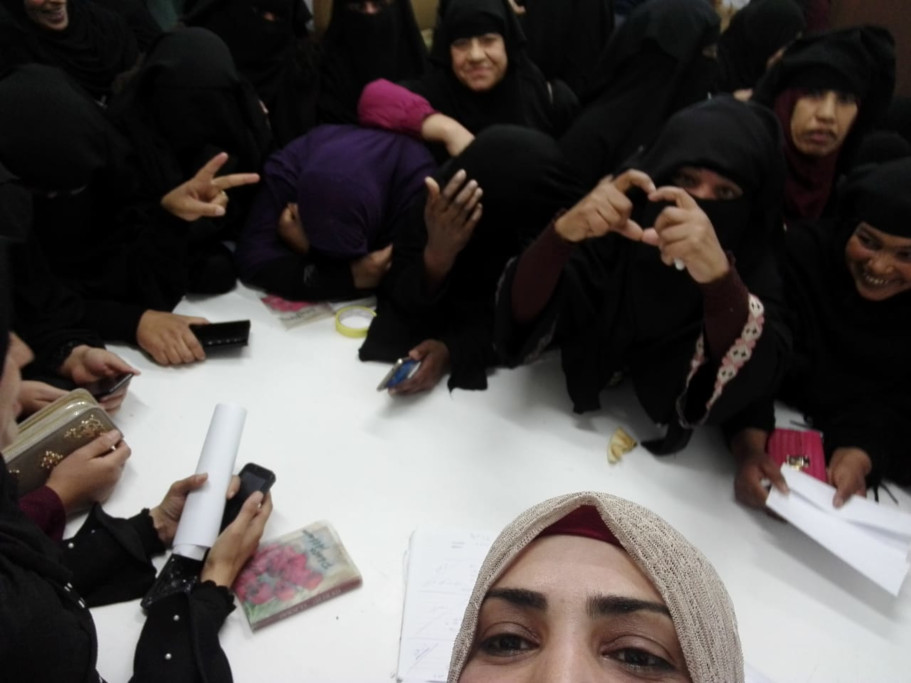
Where do you see SEP Jordan going in the future?
We’re very ambitious. We hope to be able to operate in many camps across the world, not just in Jordan, and work with thousands and thousands of artists who are refugees. This would hopefully mean a store rollout programme (we currently have shops in Geneva and Amman) and developing our online presence.
At the end it all comes down to our customers. If the customer continues to like what we do and buy what we do, whether it’s online or in our shop, then we’ll hopefully continue to grow. We’d like to open a store in Berlin before the end of the year. Opening stores means storytelling, it means sharing the story and the product and the quality with more and more people. It’s very ambitious, but hopefully our customers will allow us to do it.
For more information about SEP Jordan, visit sepjordan.com
READ MORE
The C&TH Sustainable Fashion Hub / The Best Sustainable Fashion Brands



